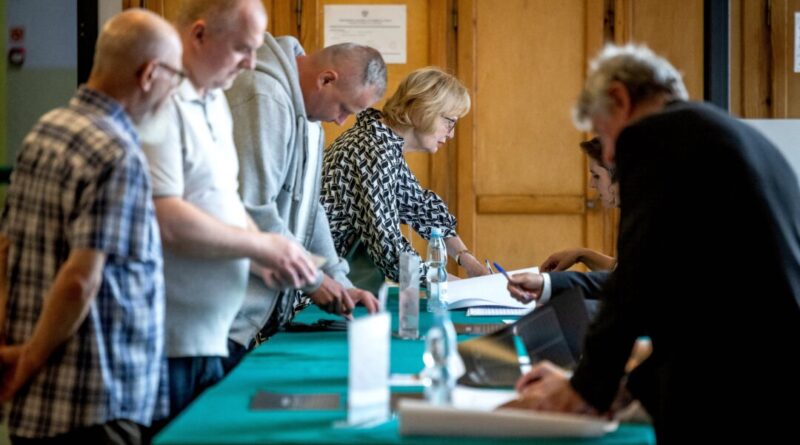Millions Cast Votes on Last Day of EU Elections
Voters across the European Union are heading to the polls on the final day of voting for the European parliamentary elections to select their representatives for the next five-year term.
Polls opened in 20 EU countries early Sunday for the June 6–9 elections for a new European Parliament, the legislative branch of the 27-member bloc.
Millions of Europeans have been participating in one of the world’s largest democratic elections this week. Right-wing parties are aiming to increase their influence amidst rising living costs, farmers’ dissatisfaction, and ongoing conflicts in Gaza and Ukraine, which are key concerns for voters.
Economic issues, employment, poverty, social exclusion, public health, and the future of Europe are also significant topics of discussion.
Official results are not expected until after all 27 EU nations’ polling stations close late Sunday.
Here’s the latest:
German Chancellor Scholz Faces First National Test Since Taking Office
Pre-election surveys indicate that the mainstream conservative opposition, the Union bloc, is expected to remain Germany’s dominant force in the EU legislature. Expectations are for poor results for the three parties in Mr. Scholz’s ruling coalition, which has grown unpopular.
The right-wing Alternative for Germany could see gains compared to its 2019 performance of 11% of the vote.
Germany contributes 96 of the 720 lawmakers shaping Europe’s new Parliament, making it the largest single share.
Poland Votes With War in Ukraine and Migration Concerns in Focus
Poles are casting their votes amidst significant security concerns as the nation lies on the eastern edge of the European Union and NATO.
The conflict in Ukraine raises fears that neighboring nations might be threatened if Russia prevails. Additionally, a migration crisis on the eastern border with Belarus has further intensified the situation, with fatal incidents occurring.
Prime Minister Donald Tusk emphasizes national security and border control enhancements as he aims for a strong showing for his pro-EU party.
Some Poles are also contemplating the role of the EU, with concerns about the bloc’s impact on national sovereignty.
Bulgarians Cast Votes for New Parliament and EU Elections
Bulgarians are participating in their sixth parliamentary election in three years, while also engaging in the European Union elections.
There are concerns about low turnout and disillusionment with politicians due to unfulfilled promises regarding corruption and reforms.
Preliminary results are anticipated on Monday for the National Assembly’s 240 seats and 17 European Parliament members.
Leading contenders in the National Assembly elections are the GERB party led by three-time Prime Minister Boyko Borissov and the reformist coalition We Continue the Change–Democratic Bulgaria.
Following a political stalemate, these rival groups formed a coalition that lasted only nine months after the previous election.
Exit Polls
In the Netherlands, exit polls indicate nationalist Geert Wilders’s party is expected to win seven of the 29 Dutch seats in the EU assembly, a significant increase from zero in 2019. In Belgium, there is a forecast of substantial support for the right-wing Flemish nationalist party Vlaams Belang.
Prime Minister Alexander De Croo’s government is likely to remain in caretaker status until a new multi-party coalition is formed.

The European Union is holding elections June 6 to June 9, in which citizens of each of the 27 member nations will elect their representatives to the European Parliament for a five-year term.
The European Parliament is the main legislative body of the EU and one of its seven institutions.
The main role of the European Parliament is to pass EU laws, together with the Council of the European Union, based on proposals made by the European Commission, the EU’s executive arm.
The Associated Press and Reuters contributed to this report.





